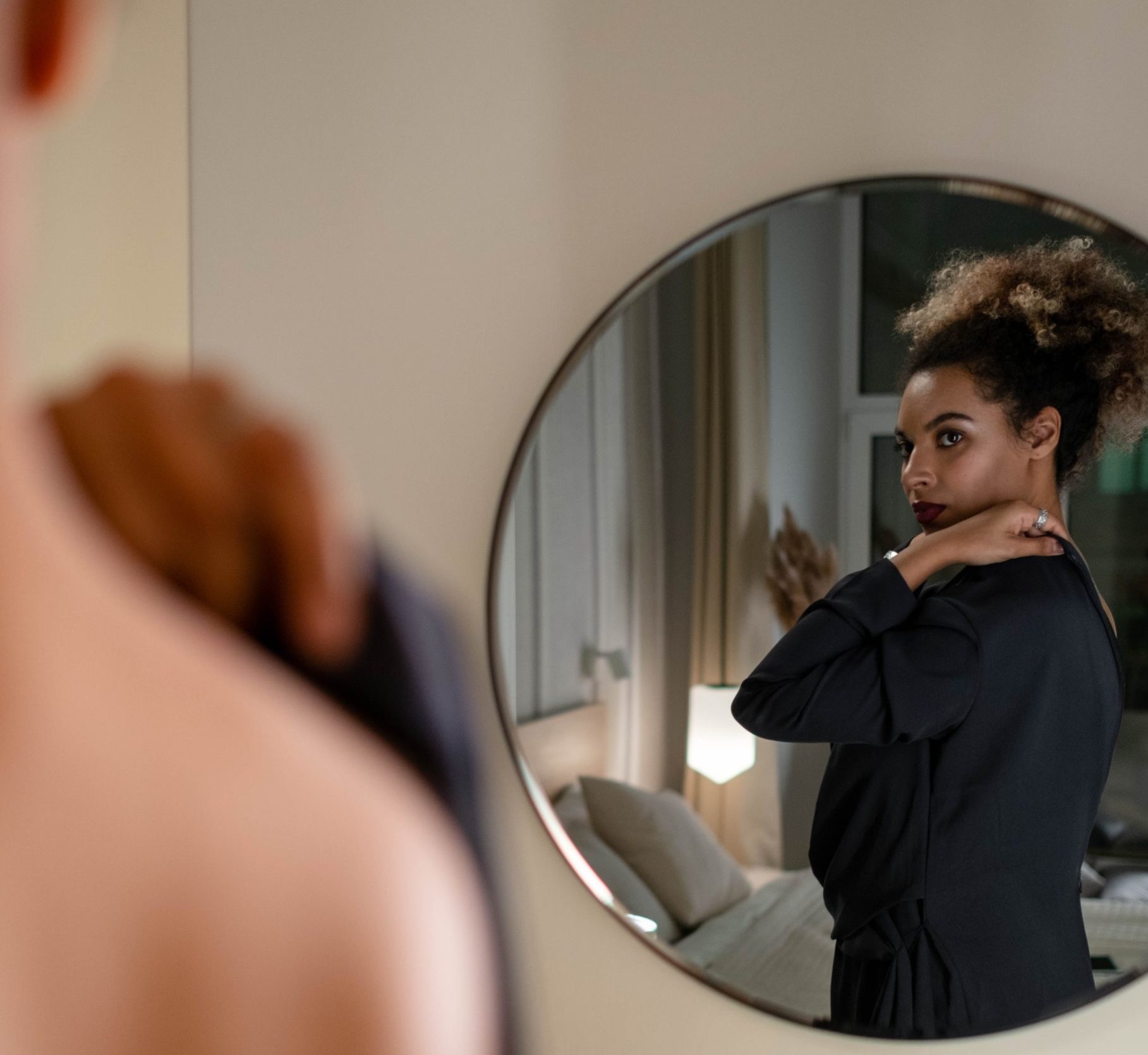Some of us are very confident in the body we have. They can look in the mirror and easily identify the body in front of them. For some others, it’s not the same narrative. Body dysmorphia is a very real condition and affects many of us. Including those in the Black community.
Body dysmorphic disorder (BDD) is a mental health condition where one hyper-fixates over certain flaws their body may have. The body that everyone else sees is not necessarily the body they see when they look in the mirror. For a long time, the disorder mainly focused on white women, overlooking body image issues in Black women. All age groups are able to fall victim to body dysmorphia, and it could start at a very young age.
Where It Stems From
Growing up in society, there are often so many opinions of what the “perfect body” should look like. For young and impressionable minds, this could have dangerous affects which lead to the development of BDD. In the Black community specifically, it’s common that family members give their unsolicited opinion on your body and one is never linear with another. You could hear, “You need some more meat on your bones,” just as easily as you would hear “That baby is getting big, what are you feeding her?”
Social media could also play a part in this. Several studies suggest that social media use is directly related to body image issues. Seeing “perfect” bodies and “perfect” faces everyday on your timeline has lasting effects on your brain and how you view yourself in comparison to others on social media.
Impacts On General Health
Being affected by BDD can snowball into many other disorders. Because of its similarities to obsessive compulsive disorder, BDD can be classified as a part of the OCD spectrum. BDD can also develop more OCD traits.
According to the Anxiety and Depression Association of America, one could also suffer from social anxiety disorder and depression due to BDD. It also is a direct link to unhealthy eating disorders. Additionally, since many symptoms of these conditions overlap, you could even be misdiagnosed.
BDD even impacts your day to day life. You can find yourself actively avoiding mirrors, constantly grooming yourself, becoming obsessed with changing your body whether through medical procedures or exercise as well as constantly requesting the opinions of others on the way you look.
@anjalivarughese To all my Kings and Queens going through this, you are not alone💛 #foryoupage #foryou #forupage #viral #xyzcba ♬ je te laisserai des mots – ★
The Impact On Black Women
Generally, the “ideal” body amongst Black women is the perfect hourglass shape. It includes having the perfect breast to butt ratio with a slim waist. This can be categorized as “BBL culture.” BDD may persuade some to go under the knife for expensive medical procedures to achieve the look. But for some who can’t afford that, it leads to much more dangerous alternatives.
Alternatives include unhealthy “quick fix” diet fads, waist trainers (which aren’t proven to have any impact) and cheap/sketchy procedures by someone who isn’t a professional. Not only are these unsafe but can have lasting mental implications.
For some women, this increases anxiety and depressive episodes because of the idea that having the body that “everyone wants” means you can get the perfect relationship, career and life. The body they see in the mirror never seems good enough in comparison to the flawless image of womanhood they often see.
@asiyahmwellness LINK TO JOIN MY TEXT WELLNESS COMMUNITY IN BIO. #healwellsis #healingjourney #blackwomanhood #blackmomsoftiktok #blackwomenshealth #affirmyourself ♬ Niko Vieilleame Telepathy – Niko Vieilleame
Black Womanhood
These ideals minimize Black womanhood to nothing more than unachievable standards. The beauty of Black women is in our diversity and being non monolithic.
Speaking to a therapist is a great first start in battling BDD. As a community however, it’s time we accept that this is a real disorder. We have to watch how we speak to our youth and only implement positivity about their appearances. In order to be able to assist in the prevention of a disorder that has long lasting affects on our Black women, we have to be proactive.
